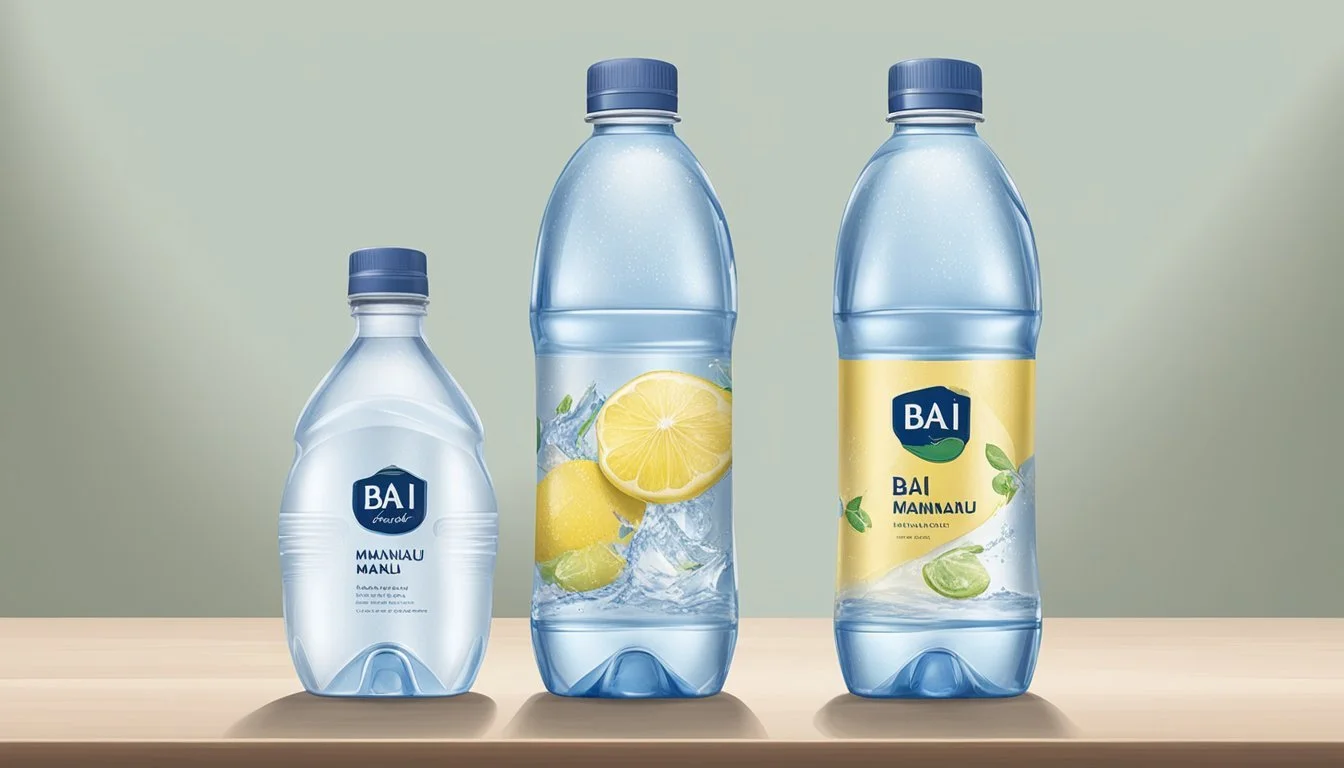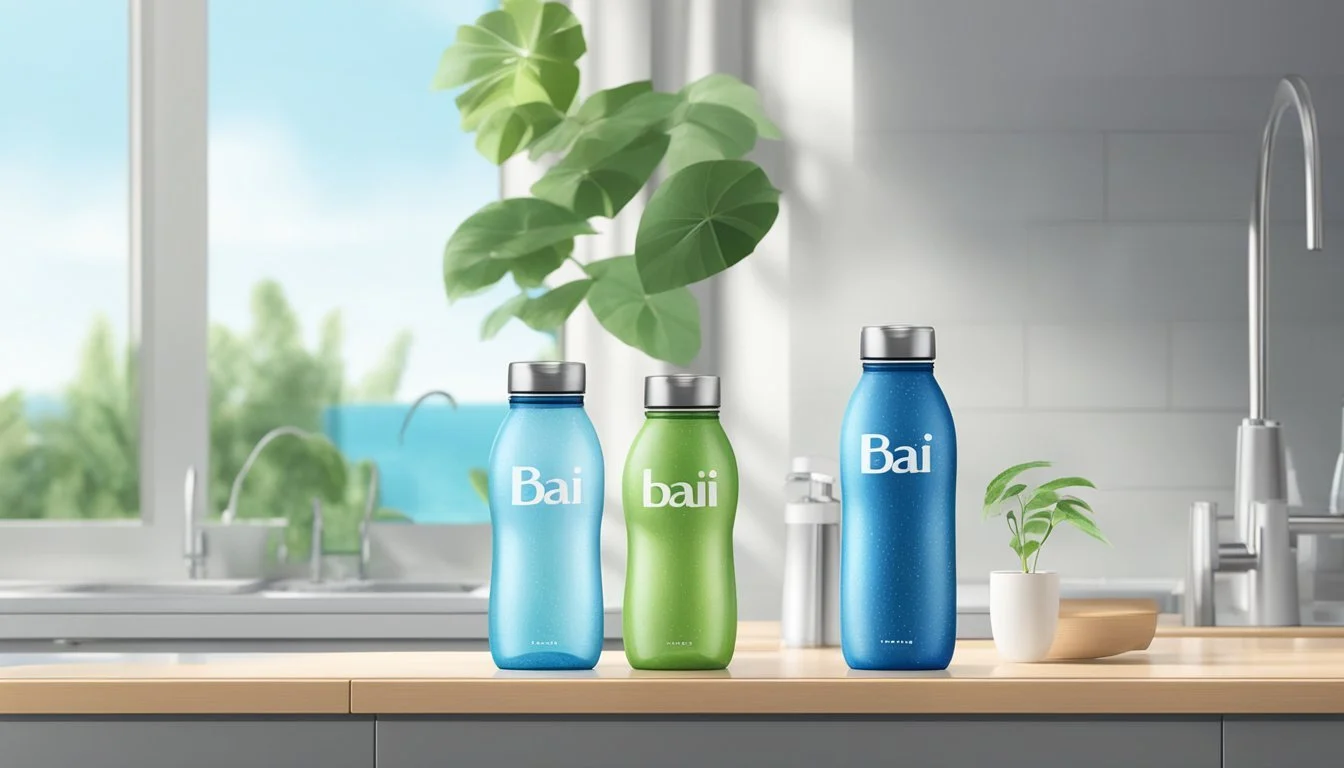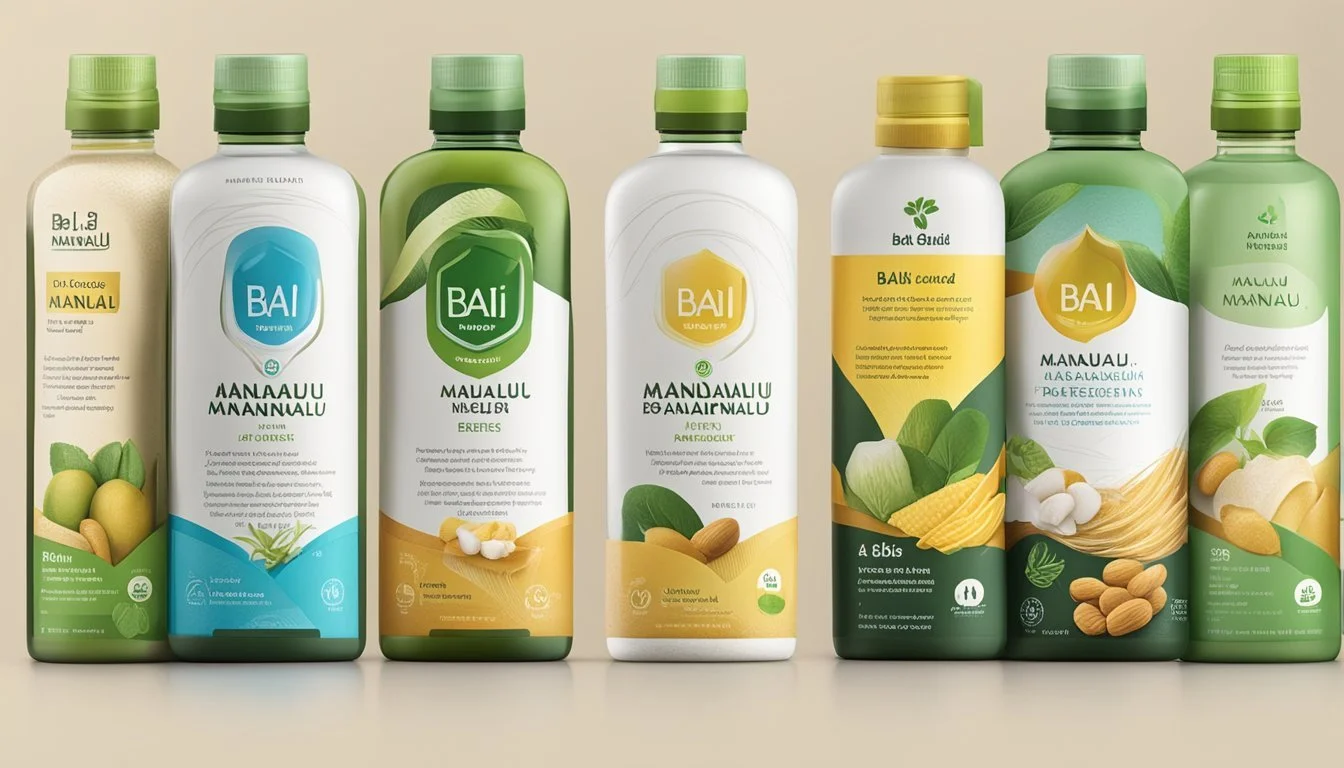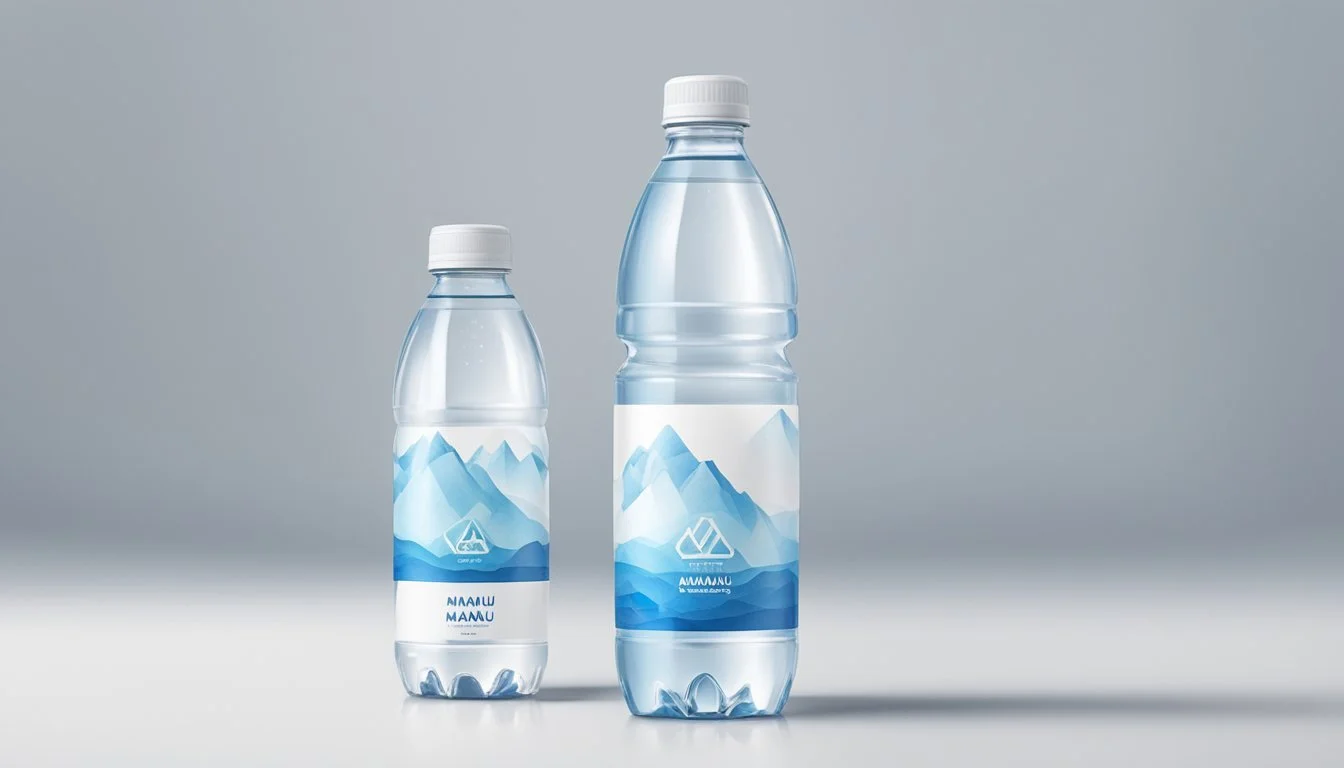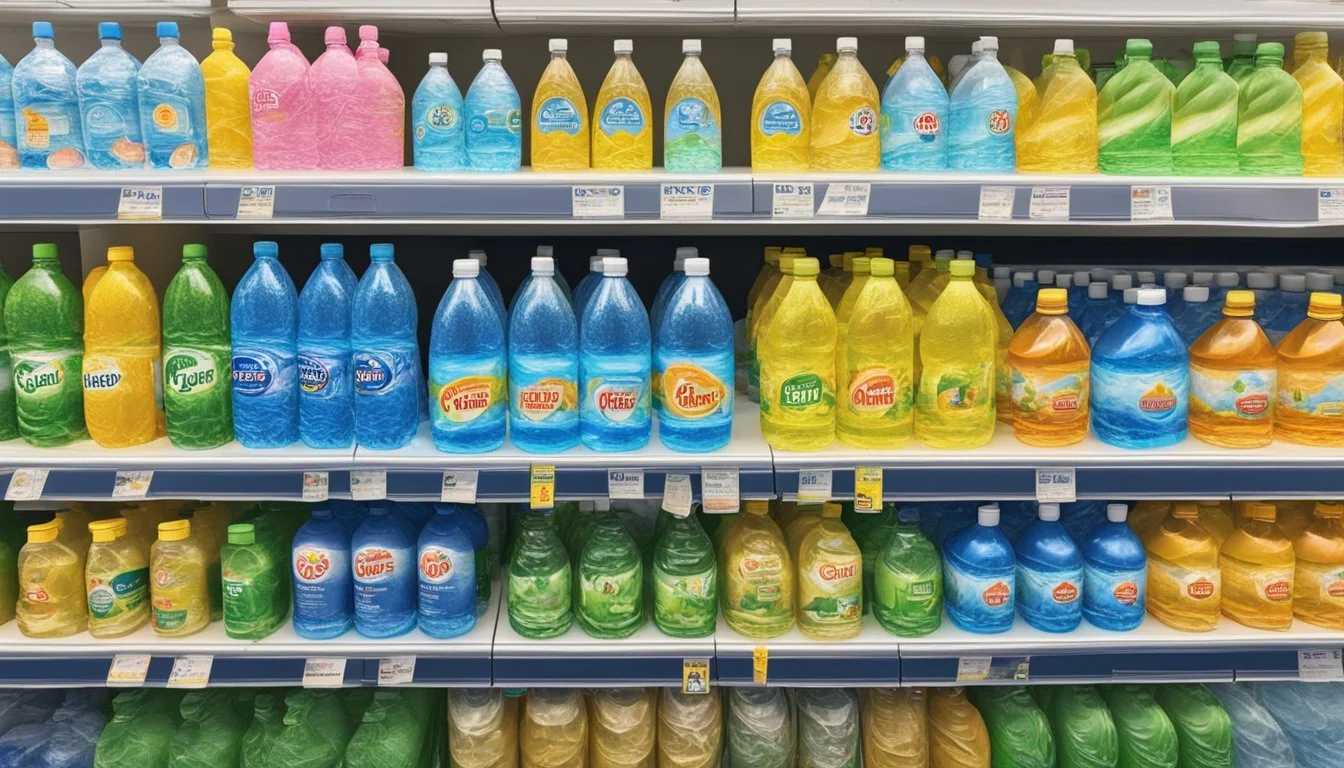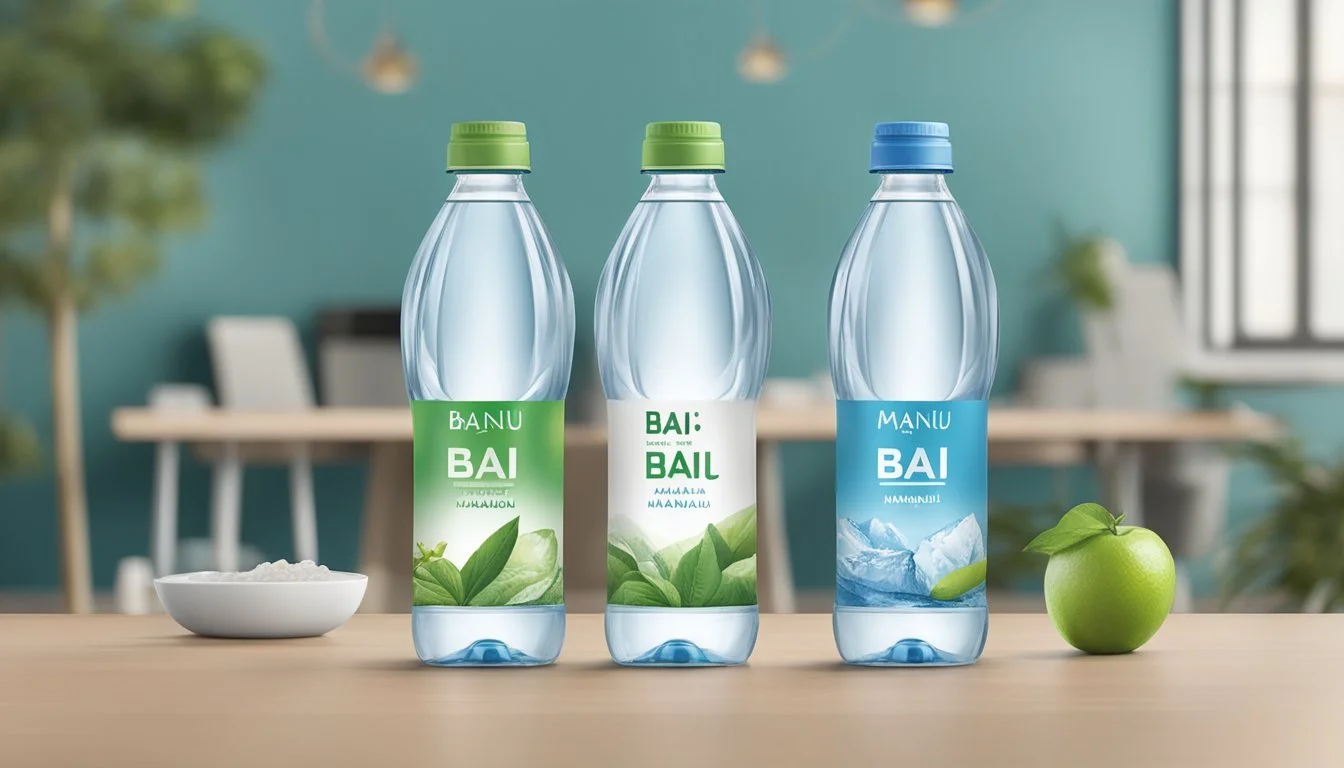Bai vs. Mananalu
Comparing Quality, Taste, and Sustainability
When it comes to selecting the right bottled water, consumers are often faced with a multitude of choices. Among the most talked-about brands are Bai and Mananalu, each offering unique benefits and health claims. Bai Water, known for its antioxidant properties derived from coffee fruit extract, boasts almost no sugar, no artificial sweeteners, and is gluten-free. Mananalu, backed by actor Jason Momoa, is celebrated for its commitment to sustainability, using 100% recyclable aluminum cans to combat single-use plastic waste.
For those prioritizing health benefits, Bai Water's packed antioxidants and low-calorie profile make it a compelling option. On the other hand, Mananalu appeals to eco-conscious consumers who appreciate its efforts to reduce environmental impact while providing purified, great-tasting water.
Choosing between Bai and Mananalu ultimately depends on whether your primary concern is personal health or environmental responsibility. Both brands offer excellent products, but the decision hinges on individual preferences and values.
Origin and Brand Philosophy
Bai was co-founded by entrepreneur Ben Weiss in 2009 with a focus on creating low-calorie, antioxidant-infused beverages. The company's name, Bai, means "pure" in Mandarin, reflecting the brand's commitment to natural ingredients. Bai drinks typically use coffee fruit and are sweetened with organic stevia extract and erythritol.
Mananalu, launched by actor Jason Momoa in April 2019, is centered on a strong environmental mission. The brand's name combines the Hawaiian words "mana" (sacred spirit of life) and "nalu" (powerful wave), signifying its aim to make waves in sustainability. Mananalu offers purified water in 100% recyclable aluminum cans to combat plastic pollution.
Mananalu's environmental initiatives include partnerships with organizations like Repurpose Global and campaigns like the “Drink One, Remove One” Initiative. This initiative commits to removing one plastic bottle from ocean-bound waste for every bottle of Mananalu purchased.
Bai's marketing strategy leverages social media platforms such as Instagram to engage consumers and promote its products. The brand has gained significant exposure through retail giants like Amazon, enhancing its market reach.
Mananalu's Hawaiian roots and sustainable packaging have contributed to its unique brand identity. Even airlines like Hawaiian Airlines have supported the brand by offering Mananalu water on flights, aligning with their own sustainability goals.
Both brands prioritize sustainability but approach it through different product offerings and marketing strategies. Bai focuses on antioxidant beverages, while Mananalu targets single-use plastic reduction with its aluminum cans. This difference reflects their unique origins and philosophies.
Product Range and Varieties
Bai and Mananalu offer distinct products that cater to different consumer preferences. Bai focuses on flavorful, low-calorie beverages, whereas Mananalu emphasizes eco-friendly packaging and pure water.
Flavor Profiles
Bai offers a rich array of flavors through its Antioxidant Infusion Drinks and Bai Bubbles. These are infused with natural fruit flavors and sweetened with stevia leaf extract, ensuring a low-calorie option. Popular flavors include Costa Rica Clementine, Brasilia Blueberry, and Malawi Mango. These options appeal to consumers who seek hydration with a burst of flavor while avoiding added sugars and artificial sweeteners.
Mananalu prioritizes pure hydration, offering spring water with no added flavors or sweeteners. This caters to those who prefer the taste of natural, unflavored water. The focus remains on the purity and quality of water, ideal for consumers mindful of clean drinking sources.
Packaging Options
Bai's products are typically packaged in plastic bottles. They offer standard-sized bottles that are easy to carry. While convenient, there is ongoing concern about plastic waste, which may affect environmentally conscious consumers.
Mananalu shines with its commitment to sustainability. Their water is packaged in 100% recyclable aluminum cans. This eco-friendly approach reduces single-use plastic waste and offers a durable, refillable option. The aluminum packaging also helps in keeping the water cool for longer periods, adding another layer of convenience for the user.
Bai Antioxidant Infusion Drinks and Bai Bubbles use plastic bottles, whereas Mananalu commits to aluminum.
Nutritional Content
Bai emphasizes health benefits in its product lines. Most Bai drinks have zero calories, are gluten-free, and use natural sweeteners like stevia. They contain antioxidants sourced from coffee fruit and tea extracts, providing additional health benefits with minimal sugar content—usually just 1 gram per bottle.
Mananalu, offering pure water, focuses on the absence of additives. This simplicity appeals to those who prefer minimalistic and unadulterated hydration. Their water is free of calories, sweeteners, and flavors, emphasizing natural purity and basic hydration needs.
Bai's drinks cater to those who enjoy flavored, low-calorie options with added health benefits, while Mananalu delivers straightforward, pure spring water in eco-friendly packaging.
Nutritional Benefits and Concerns
Bai and Mananalu offer different nutritional profiles that could affect health. This section examines their sugar content and sweeteners, caffeine and extracts, and the vitamins and antioxidants present.
Sugar Content and Sweeteners
Bai Water prioritizes low sugar content, containing only 1 gram of sugar per bottle. It avoids artificial sweeteners, opting for erythritol as a natural alternative. This makes it a low-calorie option with around 10-15 calories per 16-ounce bottle.
Unlike Bai, Mananalu does not specifically advertise added sweeteners. Its nutritional focus is more on its environmental benefits rather than sugar content. Consumers looking for a low-sugar drink may find Bai more suitable.
Caffeine and Extracts
Bai includes small amounts of caffeine derived from coffee fruit extract and tea extract. While the caffeine content is relatively low, it provides a slight energy boost without the jitters associated with higher caffeine products.
Mananalu doesn’t contain added caffeine or extracts. Its focus is purified water, which might appeal to those avoiding stimulants. Therefore, Bai’s caffeine content might be beneficial for those needing mild stimulation.
Vitamins and Antioxidants
Bai Water is enriched with antioxidants from the coffee fruit and tea extracts, contributing to its health benefits. These antioxidants help combat oxidative stress in the body.
Additionally, Bai includes small quantities of vitamins that aid in overall wellness. On the other hand, Mananalu is straightforward purified water, without added vitamins or antioxidants, focusing solely on hydration.
Selecting between Bai and Mananalu depends on the desired nutritional benefits. Bai offers added health benefits with its vitamins and antioxidants, while Mananalu provides simple, pure hydration without extra components.
Environmental Impact and Sustainability Efforts
Both Bai and Mananalu emphasize their commitment to environmental sustainability, yet they approach it in markedly different ways. The choice between them hinges on their use of materials, carbon footprint, and sustainability initiatives.
Materials and Recycling
Mananalu water uses 100% aluminum bottles that are fully recyclable. These bottles are designed to be durable and refillable, offering a sustainable alternative to single-use plastics. The emphasis on aluminum aims to reduce the volume of plastic waste, which often ends up in oceans and landfills.
Bai, in contrast, predominantly uses plastic bottles. While these are typically made from PET plastic, which can be recycled, the use of plastic still poses environmental challenges. Plastic bottles contribute significantly to plastic waste and environmental degradation since not all plastic gets recycled effectively.
Carbon Footprint and Emissions
Mananalu endeavors to lower its carbon footprint through the use of aluminum bottles, which can be recycled repeatedly. Recycling aluminum uses significantly less energy compared to producing new aluminum, thereby reducing carbon emissions. This focus on a closed-loop system helps minimize environmental impact.
Bai's reliance on plastic bottles means higher energy consumption for production and recycling processes. The carbon footprint of plastic is higher due to the energy-intensive nature of its production and the potential emissions from improper disposal. Bai's environmental impact is further compounded when single-use plastics are not effectively recycled.
Partnerships and Initiatives
Mananalu actively engages in initiatives to combat single-use plastics and conserve ocean ecosystems. The brand's "Drink One, Remove One" initiative emphasizes that for every bottle sold, an equivalent amount of plastic is removed from ocean environments. This direct action supports broader goals of reducing plastic pollution.
Bai participates in various sustainability programs and emphasizes producing eco-friendly products, but its efforts are less specific when compared to Mananalu. Bai supports general environmental initiatives and works to improve recycling rates, yet how these efforts specifically translate into measurable impacts on reducing plastic waste and emissions is less transparent.
Consumer Engagement and Social Presence
Mananalu and Bai have been active in engaging with consumers through various platforms.
Mananalu, founded by actor Jason Momoa, has a strong presence on Instagram. It frequently posts updates on new product launches and sustainability initiatives.
Bai leverages social media channels and interactive campaigns to connect with its audience.
Both brands emphasize sustainability and eco-conscious values. Mananalu highlights its mission to eliminate single-use plastics by using 100% recyclable aluminum bottles. Bai showcases its low-calorie drinks made from natural ingredients, appealing to health-conscious consumers.
Amazon reviews for both brands often highlight their commitment to quality and customer service.
Mananalu's eco-conscious image resonates well online, with followers often engaging in discussions about environmental impact.
Instagram campaigns from Bai include influencer partnerships to enhance brand visibility.
Mananalu also utilizes its founder's celebrity status to boost its social media outreach. Featuring images and videos related to environmental conservation, the brand builds a narrative that aligns with eco-friendly values.
Bai, with its wider range of flavor options, focuses on health benefits and taste. Promotional efforts from Bai often involve engaging content and interactive posts to maintain consumer interest across platforms.
Both brands effectively use social media to not only market their products but also to engage in meaningful conversations with their audiences about sustainability and healthy living.
Hydration and Health
Proper hydration is essential for maintaining bodily functions and overall well-being. This section explores critical aspects such as electrolyte content and the varied health benefits associated with staying well-hydrated.
Electrolytes and Hydration
Electrolytes play a crucial role in hydration by regulating nerve and muscle function, balancing blood acidity, and maintaining overall fluid balance. Bai drinks contain some level of electrolytes from fruit extracts and tea extracts. This helps in maintaining hydration levels more effectively than plain water in certain conditions.
Mananalu, on the other hand, primarily offers purified water known for its purity. While it lacks additional electrolytes, it may serve as an excellent source of hydration for individuals prioritizing low-intrusion, pure water. Both offer unique benefits but cater to different hydration needs.
Health Benefits of Proper Hydration
Staying well-hydrated has several measurable health benefits. Proper hydration aids in maintaining cognitive function, supports cardiovascular health, and helps in detoxification processes. Consuming beverages like Bai, which are enriched with antioxidants, may provide additional health benefits such as improved brain function.
Likewise, drinking pure water like Mananalu helps meet daily hydration needs without added sugars or artificial ingredients. This can be particularly beneficial for people seeking to avoid unnecessary additives. Ensuring adequate water intake is critical for maintaining optimal health and vitality.
Availability and Accessibility
Both Bai and Mananalu Water are widely available through multiple retail and online channels, ensuring easy access to consumers. However, there are differences in their distribution networks and pricing which might influence a buyer's choice.
Retail and Online Distribution
Mananalu Water can be bought online through the Mananalu website and Amazon. It is also available in various grocery stores including Safeway, Whole Foods, Sprouts Market, and Foodland. This diverse availability makes it convenient for customers to purchase Mananalu Water from a variety of locations.
Bai Water, similarly, is widely accessible. It is often found in major grocery chains, convenience stores, and online retailers like Amazon. The extensive distribution network of Bai ensures that customers can easily find their products in multiple retail outlets, adding to its accessibility.
Price Comparison
Mananalu Water tends to be priced higher than many bottled waters due to its eco-friendly aluminum packaging and environmental mission. Prices can vary but typically, a case of Mananalu Water may cost slightly more than conventional plastic bottled water.
Bai Water is often perceived as more affordable. Its competitive pricing helps it appeal to a broader market segment. Despite this, the cost might fluctuate depending on the retail platform, with occasional discounts available through online retailers like Amazon, making it an appealing option for price-sensitive consumers.
In summary, while both brands offer extensive availability, their pricing strategies cater to different consumer preferences and budgets.
Safety and Certifications
When considering bottled water, safety and certifications ensure that the product meets health standards and consumer expectations. Bai and Mananalu have unique attributes and certifications aimed at safeguarding consumers.
Bai prides itself on being a health-conscious beverage. It is BPA-free, which ensures that the plastic used does not leach harmful chemicals. Additionally, Bai is FDA approved, meaning it complies with safety regulations set by the Food and Drug Administration. Furthermore, Bai offers some gluten-free varieties, catering to those with gluten sensitivities.
Mananalu, founded by Jason Momoa, focuses on environmental and consumer safety. Mananalu water is also BPA-free, as it uses aluminum cans which are both safer and more sustainable than plastic. FDA approval is another hallmark of Mananalu, ensuring that the water is purified and safe for consumption. The use of aluminum eliminates the risk of plastic-related contamination, making it a secure option for consumers.
Feature Bai Mananalu BPA-Free Yes Yes FDA Approved Yes Yes Gluten-Free Select Varieties Not Specified
Both Bai and Mananalu strive to provide safe, high-quality beverages. Their respective certifications reflect their commitment to health and safety, making them reputable options in the bottled water market.
Market Comparison and Alternatives
The bottled water market offers a vast array of options. Brands like Dasani, Aquafina, and Arrowhead are household names, while niche brands such as Voss and Fiji focus on premium experiences.
Bai and Mananalu cater to specific consumer interests. Bai combines flavored water with antioxidants, targeting health-conscious individuals. Mananalu, started by actor Jason Momoa, emphasizes sustainability, packaging water in 100% recyclable aluminum cans.
Packaging Options
Various packaging methods impact the market:
Plastic: Common but environmentally harmful. Brands include Dasani and Aquafina.
Glass: Reusable and elegant. Example: Voss.
Carton: Eco-friendly option from brands like Just Water.
Aluminum: Durable and recyclable, seen in Mananalu.
Refillable: Encouraged by brands like Brita.
Environmental Impact
Sustainability is a growing concern. Mananalu and Brita lead in this area with sustainable packaging. Just Water uses carton packaging, reducing plastic usage. Traditional brands like Poland Spring and Zephyrhills face mounting pressure to adopt more eco-friendly practices.
Alternatives and Competitors
Competitors to Bai and Mananalu include:
Evian: Premium spring water offering a luxurious experience.
Essentia: Alkaline water known for high pH and added electrolytes.
Smartwater: Vapor-distilled water with added electrolytes for a clean taste.
Lifewtr: Focuses on pH balance and artistic bottle designs.
Flavor and Quality
Taste preferences vary widely. Fiji and Mountain Valley are often praised for their unique taste profiles. Bai offers a range of flavored waters, enhancing its appeal. Mananalu provides purified water with a commitment to clean drinking and minimal environmental impact.
Dasani and Aquafina remain reliable choices for everyday hydration, but emerging brands are shifting the market towards sustainably packaged options.
Conclusion
Bai and Mananalu offer unique benefits to consumers with distinct priorities on flavor, health, and sustainability.
Bai stands out for its infusion of antioxidants from coffee fruit extract and vitamins like vitamin C. It contains only 10 calories and 1 gram of sugar per bottle. This makes it appealing to those focused on low-calorie, low-sugar drinks with additional health benefits.
Mananalu, founded by Jason Momoa, prioritizes environmental impact by using 100% recyclable aluminum cans. This provides a sustainable alternative for those seeking to reduce single-use plastics. The brand’s mission aligns with growing consumer demand for environmentally-conscious products.
Nutrition Comparison:
Aspect Bai Mananalu Calories 10 per bottle 0 Sugar 1 gram 0 Antioxidants Yes (coffee fruit extract) No Vitamins Vitamin C No
Sustainability:
Bai: Uses recyclable plastic but faces criticism associated with plastic waste.
Mananalu: Focuses on aluminum packaging, which is recyclable and durable, reducing plastic pollution.
Consumers should weigh the health benefits of Bai’s nutrient additives versus Mananalu’s strong commitment to sustainability. Both have their merits depending on individual priorities, whether they are health-focused or environmentally conscious.

